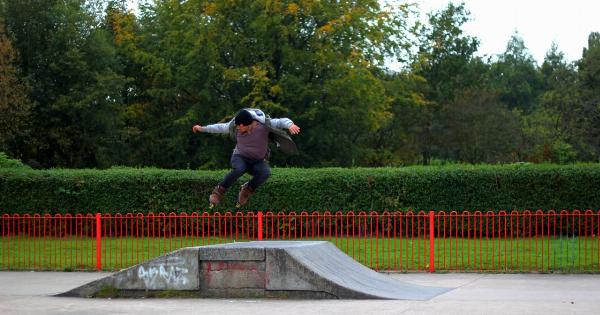Punishment is a common strategy that parents and guardians use to correct or improve the behavior of their children.
In most cases, it involves a form of negative reinforcement that involves imposing some form of unpleasant consequence in response to certain undesirable behaviors. However, the effectiveness of this strategy in improving child behavior has always been a subject of debate.
While some experts advocate for punishment as an effective strategy, others disagree, claiming that it may have adverse effects on child development and behavior. This article examines the effectiveness of punishment in improving child behavior in detail.
Types of Punishment
Punishment comes in various forms, depending on the specific behavior or circumstance that triggered it. Some of the most common forms of punishment include:.
: Physical punishment
Also known as corporal punishment, it involves inflicting physical pain or discomfort in response to undesirable behavior. Examples include spanking, slapping, and hitting.
: Withdrawal of privileges
This involves taking away previously granted privileges such as TV time or phone use to discourage undesirable behavior.
: Verbal reprimands
Verbal reprimands or scolding involves using harsh or negative language as a form of punishment. This often includes name-calling, yelling, or threatening.
: Timeouts
Timeouts is a form of eliminating a distracting factor to shift the child’s focus while interrupting their behavior. It is achieved by separating the child from the activity and spending time alone.
Effectiveness of Punishments
The effectiveness of punishment in changing child behavior depends on various factors, including the child’s age, personality, and the type of behavior being corrected.
While some experts believe that punishment can be an effective tool in curbing undesirable behavior, others argue that it has several limitations.
Short-term Effectiveness
Punishment can be effective in the short term, especially in stopping undesirable behavior. For instance, spanking may stop a child from hitting another child. However, this effectiveness is often short-lived.
Children often develop resentment towards the person imposing the punishment, making them less likely to respond positively to future disciplinary actions. This is particularly the case for punishments that involve physical harm or verbal abuse, as these may cause emotional or psychological harm to a child.
Long-term Effectiveness
Long-term effectiveness is often the most important aspect of punishment, considering that good behavior is a habit that a child should develop and maintain over their lifetime.
However, research shows that punishment may not be effective in the long run. A study conducted by researchers at Duke University found that children exposed to physical punishment were more likely to develop mental health problems later in life.
Long-term use of punishment can also result in low self-esteem, depression, and other behavioral issues in children.
Alternatives to Punishment
Alternatives to punishment may prove to be more effective in improving child behavior. Some of the alternatives to punishment include:.
: Positive reinforcement
This involves rewarding good behavior to reinforce positive habits. For instance, parents can reward a child for finishing their homework on time or getting good grades in school.
: Active listening
Active listening involves giving children a chance to express their feelings and thoughts without judgment. This can help the child feel heard and understood, thus giving them a sense of ownership of their behavior.
: Modeling
Children often learn by watching the behavior of the people around them. By setting a good example and modeling acceptable behavior, parents can help their children learn good behavior more easily.
: Reinforcing natural consequences
A natural consequence occurs when your child experiences the result of their behavior. For example, if your child refuses to wear a jacket outside when it is cold, they will naturally feel cold.
Experiencing this “natural consequence” may lead to the child learning to wear a jacket without having to be reminded.
Conclusion
In conclusion, while punishment may be seen as an effective way to improve child behavior, its effectiveness may not be long-term. Long-term negative consequences such as psychological harm may ensue as a result of long-term punishment.
Alternative methods such as active listening, role modeling, reinforcing natural consequences, and positive reinforcement may be more effective tools in helping children learn good behavior. Ultimately, the most effective way to improve child behavior is through a combination of education, positive support, and consistent consequences.



























